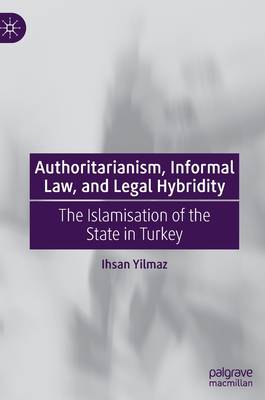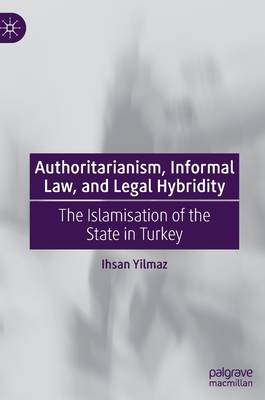
- Retrait gratuit dans votre magasin Club
- 7.000.000 titres dans notre catalogue
- Payer en toute sécurité
- Toujours un magasin près de chez vous
- Retrait gratuit dans votre magasin Club
- 7.000.000 titres dans notre catalogue
- Payer en toute sécurité
- Toujours un magasin près de chez vous
Authoritarianism, Informal Law, and Legal Hybridity
The Islamisation of the State in Turkey
Ihsan YilmazDescription
This book investigates Turkey's departure from a 'flawed democracy' under Kemalist secularism, and its transitioning into Islamist authoritarian Erdoğanism, through the lenses of informal law, legal pluralism, and legal hybridity. In doing so, it examines the attempts of Turkey's ruling party (AKP) at social engineering and gradual Islamisation of the Turkish state and society, by using informal Islamist laws.
To that end, the book argues that the AKP has paved the way for Islamist legal hybridity where society, state, and law, are being gradually Islamised on an ad hoc basis. Informal law and legal pluralism in Turkey have had a non-state characteristic which have permitted Muslims to solve disputes by seeking the opinions of religio-legal scholars. Yet under the AKP rule, this informal legal system has become increasingly dominated by conservatives, sometimes radical Islamists, which the governing party has taken advantage of by either formalizing some partsof the informal Islamist law, or using it informally to mobilize its supporters against the opposition.
Spécifications
Parties prenantes
- Auteur(s) :
- Editeur:
Contenu
- Nombre de pages :
- 258
- Langue:
- Anglais
Caractéristiques
- EAN:
- 9789811902758
- Date de parution :
- 07-04-22
- Format:
- Livre relié
- Format numérique:
- Genaaid
- Dimensions :
- 148 mm x 210 mm
- Poids :
- 471 g







